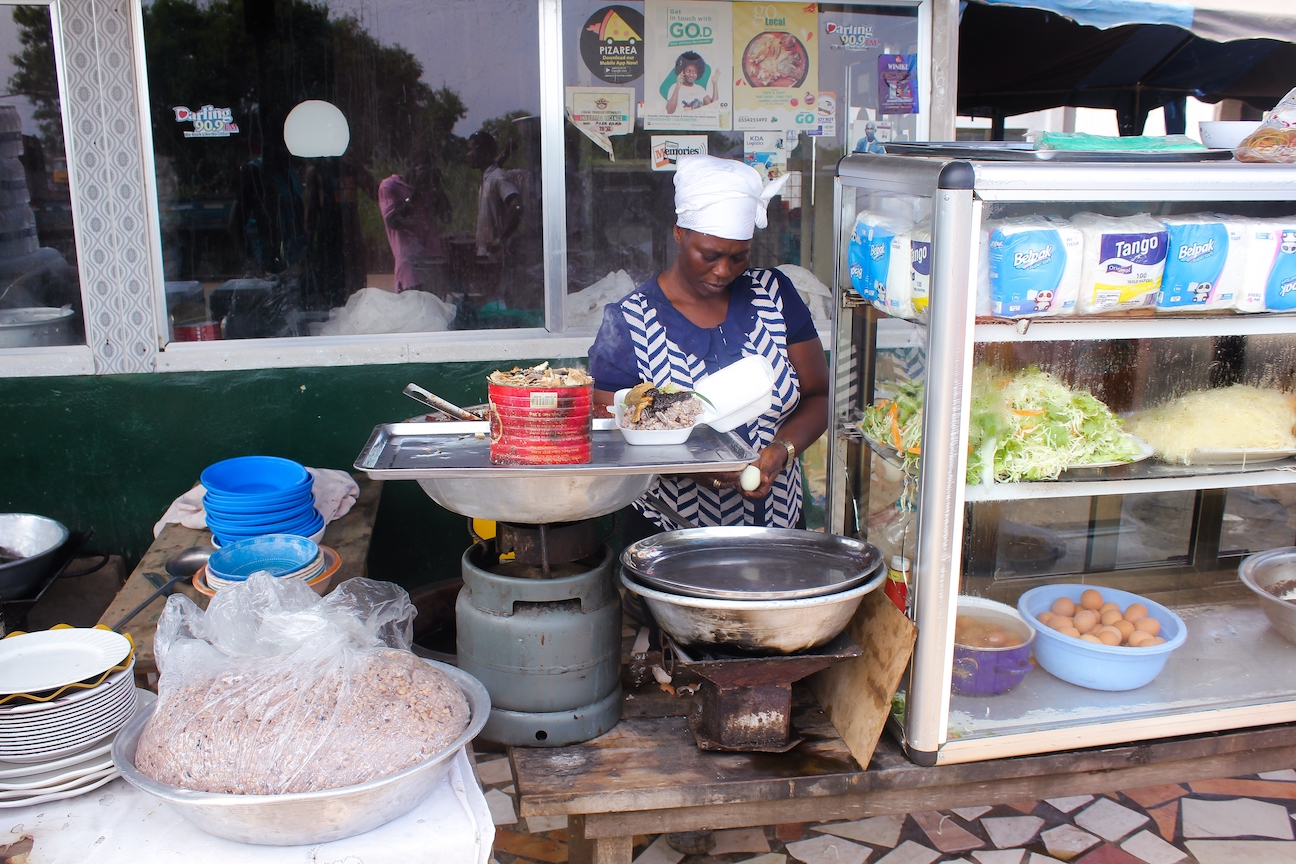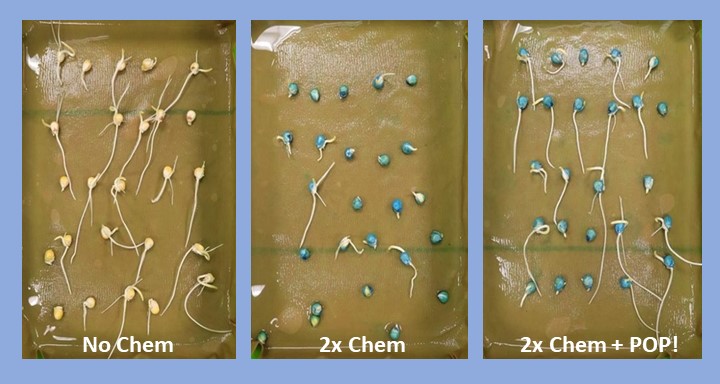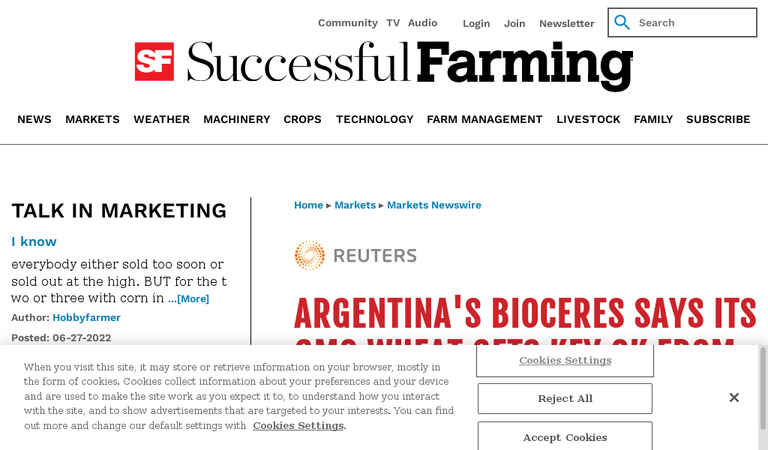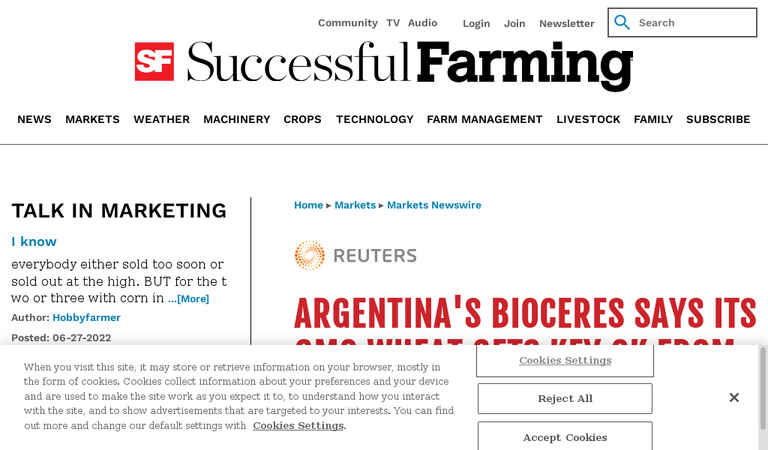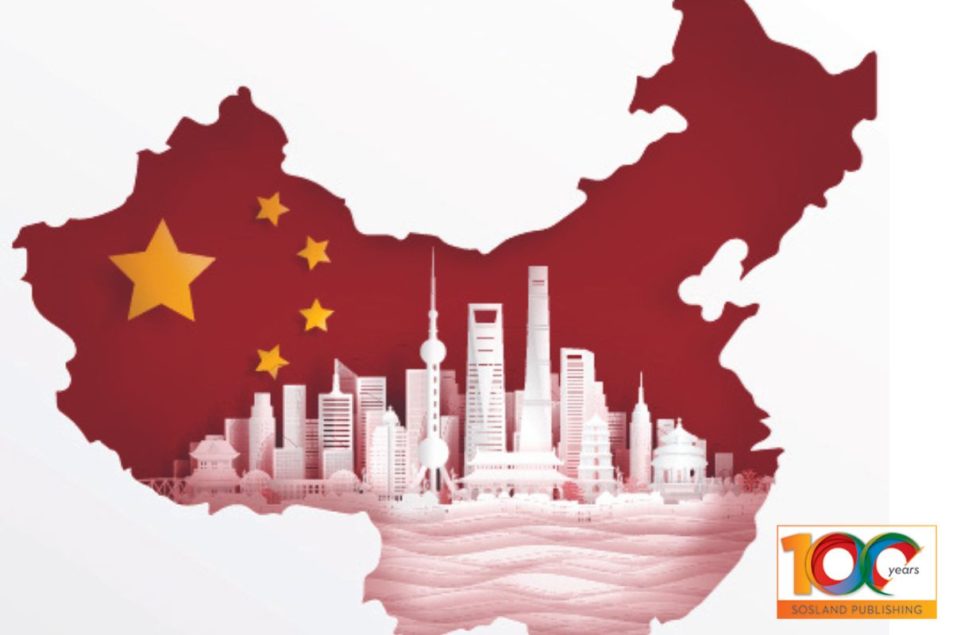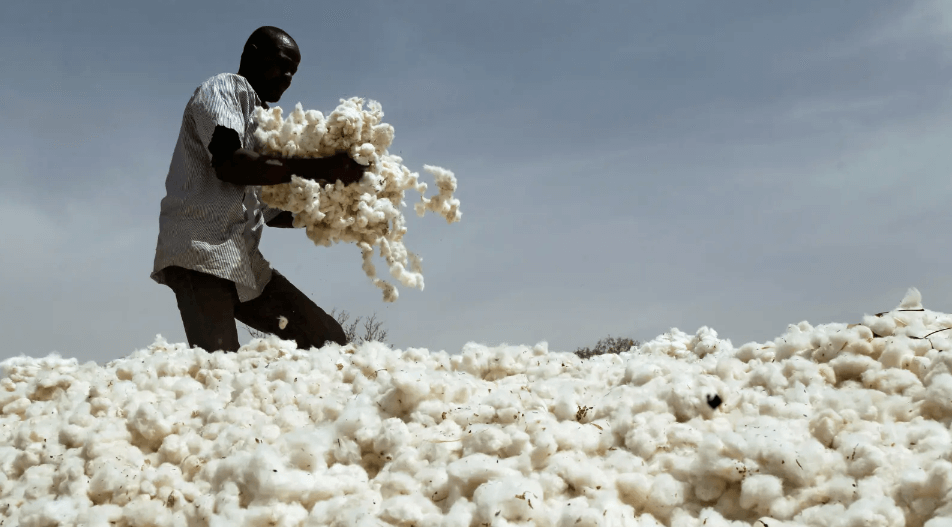07/05/2022 SOURCE: www.isaaa.org
What can gene editing experts learn from communicating genetic modification? What is the right strategy towards public acceptance? These are just some of the questions answered in the chapter Communicating Genome Editing: Editing the Bloopers from the Past Science Communication Strategies authored b
From Bloopers to Breakthroughs: Science Communication Strategies for Gene Editing
-
(0)
-
Bookmark
- Comments. (0)
07/05/2022 SOURCE: allianceforscience.cornell.edu
As the price of delicacies made from cowpea, or beans, continues to rise in Ghana, some vendors are hoping that genetically modified cowpea will increase supplies and reduce consumer costs. Cowpea is a key ingredient in such popular Ghanaian dishes as waakye, gari and beans (also known as red-red or gorbe) and kose. It typically […]
Ghana's food vendors hope GM cowpea brings lower prices - Alliance for Science
-
(0)
-
Bookmark
- Comments. (0)
 John LaRose Jr.
John LaRose Jr.
Topics: Crop Consultant, Agriculture Global, Sustainability, GMO's, Research, Genes /Genetics,
Kannar’s All-New, All-Natural Seed Safener Helps Seed Reach Its Full Potential - Seed World
Researchers proved long ago that adding pesticides and other chemical treatments to seed can overload the seed, causing germ delays or even some phytotoxic side effects. Because the benefits of seed treatments still outweigh those negative effects, growers have accepted the seemingly necessary consequences. That won’t have to be the case much longer. Kannar Earth […]
-
(0)
-
Bookmark
- Comments (0)
 Randy Krotz
Randy Krotz
Topics: GMO's, FDA, USDA, Ag South America, Food Security/Shortage,
Argentina's Bioceres says its GMO wheat gets key OK from U.S. FDA
BUENOS AIRES, June 27 (Reuters) - Argentina's Bioceres said on Monday that the U.S. Food and Drug Administration had positively concluded a review of its genetically modified (GMO) drought resistant HB4 wheat, which it called a "key step" to commercializing it in the country.The HB4 wheat still needs approval from the U.S.
-
(0)
-
Bookmark
- Comments (0)
06/27/2022 SOURCE: www.agriculture.com
BUENOS AIRES, June 27 (Reuters) - Argentina's Bioceres said on Monday that the U.S. Food and Drug Administration had positively concluded a review of its genetically modified (GMO) drought resistant HB4 wheat, which it called a "key step" to commercializing it in the country.The HB4 wheat still needs approval from the U.S.
Argentina's Bioceres says its GMO wheat gets key OK from U.S. FDA
-
(0)
-
Bookmark
- Comments. (0)
06/27/2022 SOURCE: www.tbsnews.net
The introduction of GMOs is alarming news for Bangladesh, a country belonging to the biogeographical region known as the origin of diversity, and also for its climatic and agroecological
Bt Cotton approval. Another alarming threat?
-
(0)
-
Bookmark
- Comments. (0)
06/23/2022 SOURCE: geneticliteracyproject.org
Two anti-GMO stalwarts — the European Union (EU) and New Zealand — are showing signs of softening their stance toward the technology in the face of climate change impacts and pressure to innovate. Regulators and others in the EU and NZ are advising that existing regulations are out of date and fail to reflect recent advances in the technology, particularly the potential of new tools like gene editing. They say regulatory revisions may be required to reduce carbon emissions and ensure food production remains competitive. Any policy shifts in New Zealand and the EU are expected to have far-reaching effects on farmers, scientists and consumers in both jurisdictions, as well as trading partners and the rest of the world. Gene editing would revolutionize breeding programs in New Zealand, a particularly useful dividend for a country where plant-based commodities account for around half of the export earnings. Genetic engineering has also been fronted as a solution for the increased threat from pests and diseases, such as those afflicting the valuable kiwifruit and forestry industries. The technology could also be used to confer desirable traits on some of the country’s important export plant species.“ Gene editing offers the potential to produce a step change in NZ primary industry productivity, biosecurity and speed of innovation. This is particularly the case for perennial crops with slow or complex breeding cycles that are a feature of NZ’s plant-based exports,” notes a study published in the online journal Frontiers in Plant Science.
Pressure mounts on EU and NZ to review their strict anti-GMO policies
-
(0)
-
Bookmark
- Comments. (0)
06/21/2022 SOURCE: www.world-grain.com
World’s most populous nation reaches for self-sufficiency as it holds fast to food security.
China hungry for more
-
(0)
-
Bookmark
- Comments. (0)
06/21/2022 SOURCE: www.kenyans.co.ke
The maize flour prices have begun going up and hit an all-time high of Ksh205 per 2KG packet.
Reprieve as Maize Imports to Curb Shortage Arrive
-
(0)
-
Bookmark
- Comments. (0)
06/16/2022 SOURCE: geneticliteracyproject.org
At least 10 manufacturers including Bidco East Africa have been allowed to import 28 million kilogrammes of genetically modified organism (GMO) cotton
As Ukrainian conflict continues to disrupt global food imports, Kenya gives okay for farmers to import GMO cotton seed, a first for the country
-
(0)
-
Bookmark
- Comments. (0)



